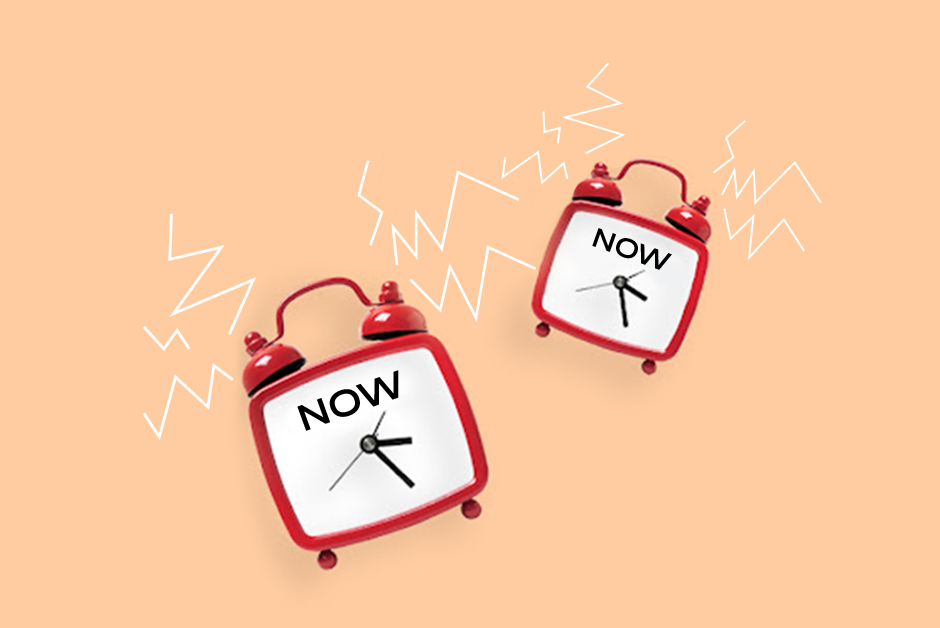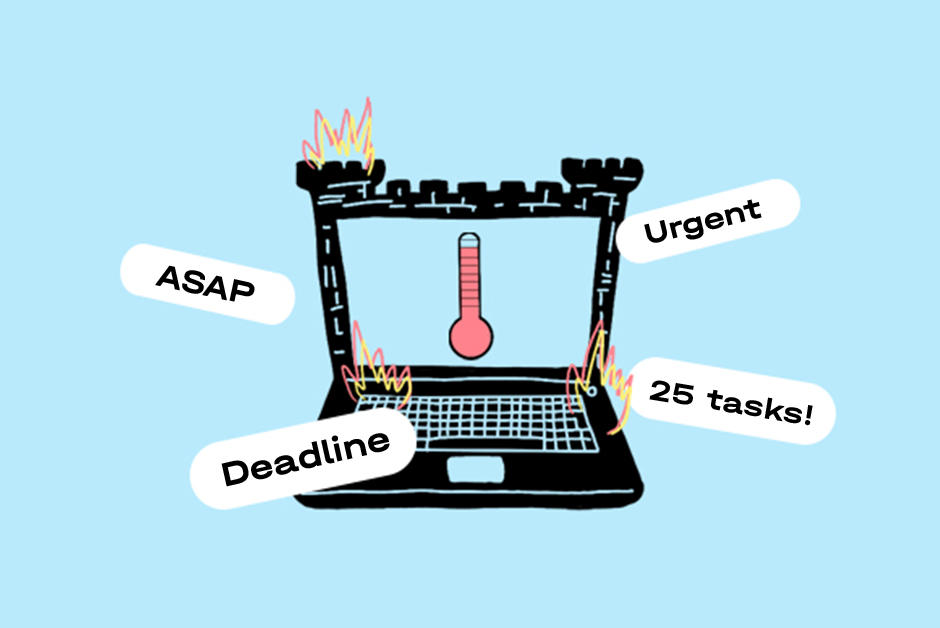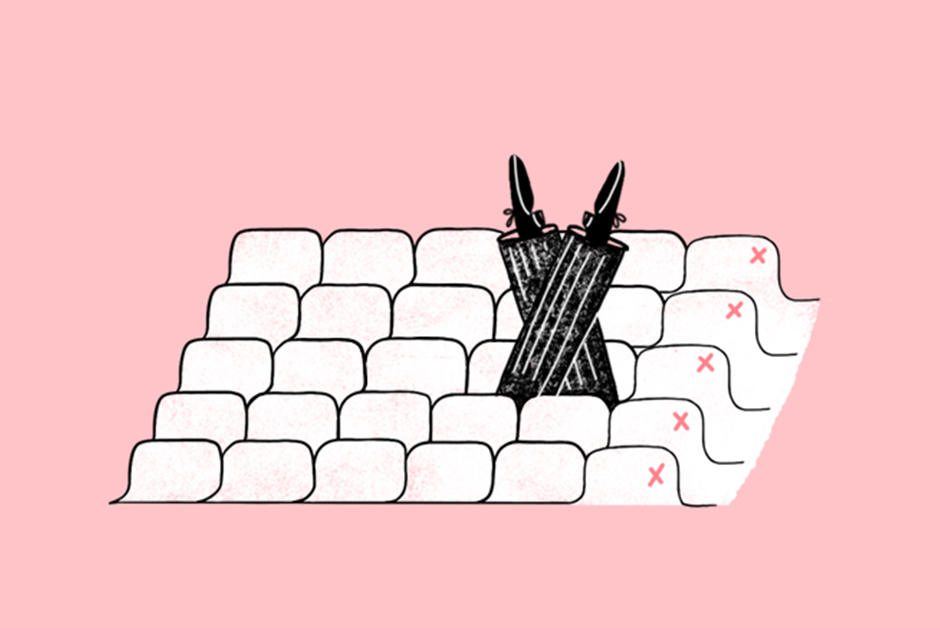According to a study by The University of California, employees who are interrupted by calls and emails need on average 23 minutes to get back on track.
After reviewing Inc, Fast Company, and the Huff Post materials, we've identified the 6 most common causes that worsen focus and need to be eliminated.
#1. Constant phone checking
According to the study by Reviews.org, 66% of Americans look at their smartphones up to 160 times a day, 75% consider themselves addicted to gadgets.
“The biggest mistake many of my clients make is sitting down to work with their phone next to them. If a web page takes too long to load or they have a few seconds to spare, they immediately reach for their phone. And it can end up being a 10 minutes’ time waste” stresses American time management coach and author of It's About Time podcast, Anna Dearmon Kornick.
How to fix it:
- turn off instant messengers and social networks notifications
- keep your phone out of reach when you need to focus
- turn off your gadget while working
- use your smartphone during manageable breaks
#2. Taking on non-work-related tasks that “will only take a minute”
Now you are diligently working on the task, and the next moment you find yourself making a shopping list, wiping the monitor, and forgetting what you were going to do before.
Starting to deal with a task as soon as it сrosses your mind is a habit that is gradually turning into a problem. We convince ourselves that it will only take a moment, but a snowball grows.
According to career coach Anielis Cordero, balancing work and household chores is a common challenge of remote work during the pandemic, causing people to lose energy.
How to fix it:
- make a list of personal tasks and allow time to address them so you don't get distracted while working.
- figure out what you can delegate, defer, or do later
- arrange purposeful work sprints (choose time intervals individually) instead of three hours of mindless multitasking.
#3. Open too many browser tabs
A study by the American Carnegie Mellon University showed that 55% of respondents had problems closing tabs, not because they could not find a tiny cross, but because, according to the respondents, these pages may contain necessary information. As a result, 30% of people report a "tab stacking problem" and feel stressed.
Adam Stiles, who created the tabs feature in 1995, says that its overuse may be сonditioned by the psychology of loss aversion: “Why do we keep so many tabs open? We do that because often it takes a while to find what we need — and we are afraid to lose this information forever.”
How to fix it:
- keep open only those pages you need for work
- use tab organizers ( like One Tab) to turn them into a list
- use background managers like Tab Auto Close and Tab Wrangler to automatically close tabs after a long inactivity
#4. Impulsive work chats and emails checking
Looking into work chats during the day is normal. But if you keep checking them over and over, paying attention to every single request, you can get stuck in a constant flow of minor tasks without moving on to more important projects.
Taking on a habit to immediately respond to notifications and barely sign out of Slack, you signal that you're ready to drop everything and process someone else's request, increasing your own workload.
According to life coach and TEDx speaker Shanita Liu, this sets a precedent for your team members. They will expect you to respond immediately and restrain from using email to contact you faster and resolve your issue.
A study by the University of British Columbia showed that by limiting email checking to only 3 times a day, people significantly reduce their stress levels.
How to fix it:
- turn off new email notifications
- define the time when you check a work chat or email
- set boundaries with co-workers so that they knew when you shouldn't be interrupted by texting
- if necessary, change the status in the work chat to "Away"
#5. Resolving every incoming problem and request
According to Tanya Menon, Professor of Management at Ohio State University, it's not uncommon for employees with a high level of expertise to impulsively dive into problem-solving. They prefer to do everything quickly and autonomously but do not analyze how appropriate it is to spend their time and other resources on a specific task.
Menon emphasizes that by following the “get a quick fix” impulse, you are ignoring other (perhaps more effective) ways to deal with a problem.
How to fix it:
- do not take on the task immediately and on your own
- analyze whether finding a solution is within your area of responsibility
- ask clarifying questions and engage colleagues
- brainstorm with the team so that they also participate, and do not wait for ready-made answers
#6. Wasting time on unnecessary meetings
Have you ever had a Zoom call and wondered why waste a whole hour on something that could have been discussed over email? Sometimes these are one-time meetings, but sometimes they appear in your calendar again and again.
47% of employees surveyed by Salary.com mentioned "too many meetings" as the top cause of workplace distractions.
“When meetings are held primarily to spread information, I suggest using other communication formats,” says meeting consultant Steven G. Rogelberg.
Often, regular one-hour calls are scheduled to keep track of what each employee is doing and discuss current tasks. If your productivity suffers due to unnecessary meetings, you have the right to make suggestions to change the сommunication format.
How to fix it:
- do not agree to attend a meeting unless the host has provided a specific agenda and indicated how long it will take
- plan all meetings with a clear schedule and list of questions, identifying a person who will follow the deadlines and moderate the call
- regularly ask why a particular meeting is needed, and collect feedback from participants on the duration and usefulness





